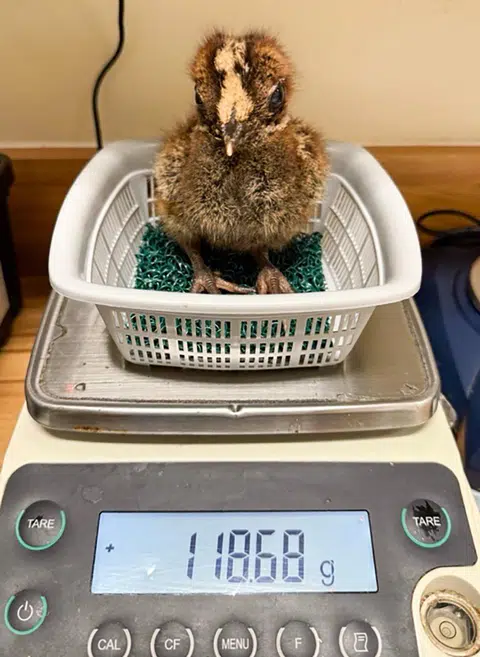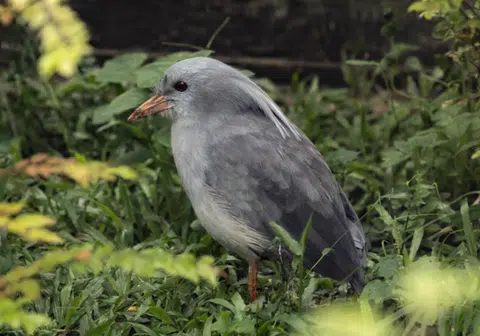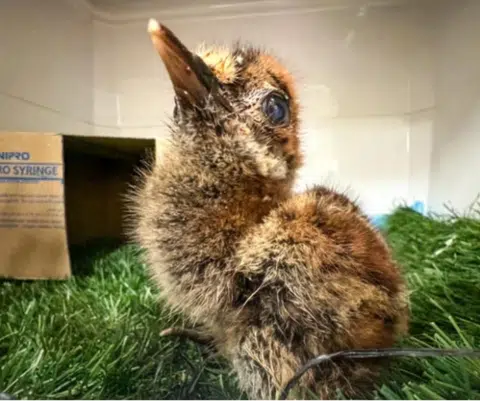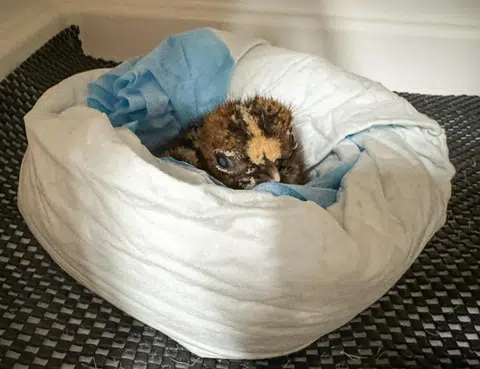Bird Paradise celebrates historic first hatching of endangered kagu chick
In a rare and remarkable breakthrough for avian conservation in Singapore, Bird Paradise has successfully hatched its first-ever kagu chick, marking a historic milestone in the care and breeding of one of the world's most elusive birds.
In a media release on April 30, Mandai Wildlife Group, which oversees the operations of Bird Paradise, said the chick hatched on March 1 after 25 days of artificial incubation. It is currently being hand-raised at the park's Breeding and Research Centre. The kagu is a flightless bird native to the dense forests of New Caledonia, a French territory located in the south-western Pacific Ocean, east of Australia and west of Vanuatu. It is generally regarded as elusive, preferring to remain hidden in dense, humid forests.
"Welcoming our first kagu chick has been incredibly special for the team," said Ms Anais Tritto, assistant vice-president of animal care at Mandai Wildlife Group.
"After several unsuccessful incubation attempts by the parent birds, we stepped in to artificially incubate the egg, carefully controlling the temperature and humidity to replicate natural nesting conditions as closely as possible to support healthy development," she said.

Ms Tritto added that for a species as rare and challenging to breed in managed care, every successful hatching represents both a scientific achievement and a source of hope.
The adult kagu is easily recognisable by its bluish-grey feathers, bright orange beak and legs, and a striking crest that it displays during courtship and territorial rituals.

With an estimated wild population of just 500 to 1,000 individuals, the kagu is classified as endangered by the International Union for Conservation of Nature.
Breeding the species in captivity is notoriously difficult, said Mandai Wildlife Group. Kagus have a low reproductive rate, typically laying only one egg a year. They are monogamous and require strong pair bonds, reinforced by elaborate courtship displays such as crest-raising, wing-spreading, and vocal duets.
Compounding the challenge, their shy nature and sensitivity to environmental factors make successful incubation and chick-rearing particularly delicate under human care.
In 2024, the chick's genetically matched parents - a pair from Yokohama Zoo that arrived at Bird Paradise in 2023 - laid two eggs in separate nesting attempts, both of which failed to hatch.
These setbacks were likely due to parental inexperience or unsuitable environmental conditions. Learning from these experiences, keepers transferred a third egg to a hatcher to maximise its chances of survival, Mandai Wildlife Group explained.

Since hatching at just 36g, the chick has grown steadily and now weighs 630g - well on its way to the adult weight of around 1kg.
Keepers have had to adapt their care methods to accommodate the chick's unique needs, including finding appropriate dietary substitutes, modifying nesting equipment and creating a comfortable environment. A cardboard box was placed in its brooder to mimic a safe hiding space and a plush toy was introduced to offer comfort in place of its parents.

The chick is now transitioning to an adult diet of prawns, mice and live insects. Its daily routine includes morning sun sessions for natural vitamin D and regular weigh-ins to monitor its growth. Later in 2025, once it gains independence, it will move to an aviary at the Winged Sanctuary exhibit.
Because male and female kagus are visually identical, DNA testing will be conducted to determine the chick's sex once it matures.
As part of the European Association of Zoos and Aquaria's Ex-situ Programme, the kagu breeding initiative at Bird Paradise contributes to the global effort to preserve the species through managed care and genetic diversity.
Vihanya Rakshika for The Straits Times